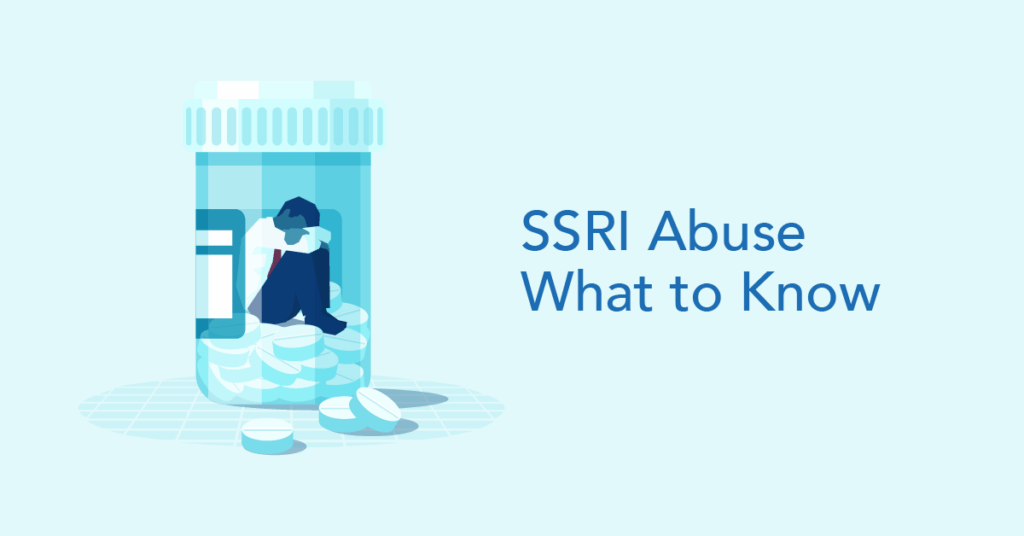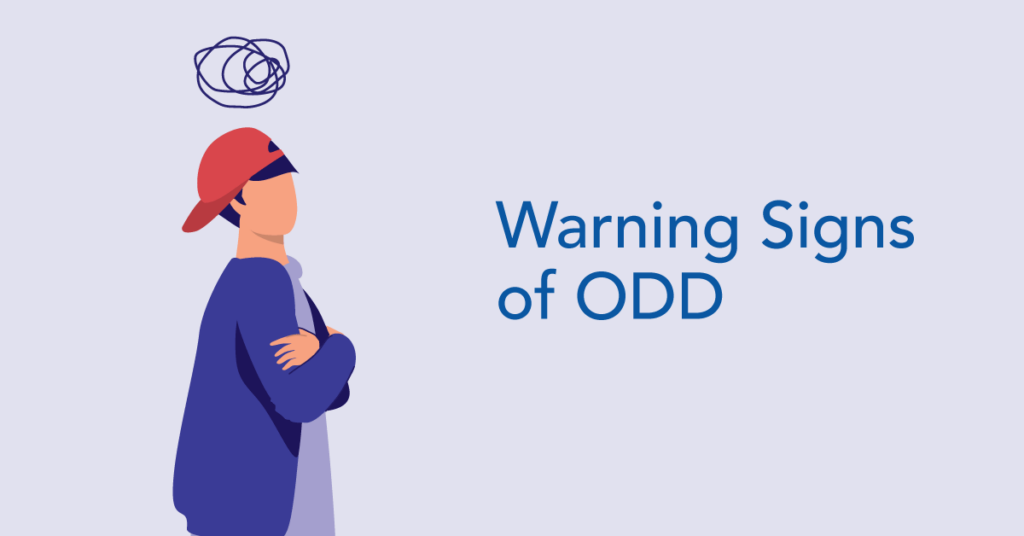What is SSRI Abuse?
SSRI abuse refers to the misuse of selective serotonin reuptake inhibitors, a class of antidepressants, in ways not prescribed by a medical provider.
SSRIs are among the most commonly prescribed medications for depression and anxiety. They’re generally considered safe and nonaddictive when taken as directed. However, some individuals may misuse SSRIs in attempts to self-medicate or enhance mood or combine them with other substances. This kind of misuse can lead to serious mental and physical health consequences.
While not often associated with traditional drug abuse, the misuse of psychiatric medications — including SSRIs — is an important and growing concern. Understanding how SSRIs work, how they can be misused and what the risks are can help people make safer decisions about treatment and recovery.
What Are SSRIs?
Selective serotonin reuptake inhibitors (SSRIs) are a type of medication most commonly used to treat:
- Major depressive disorder (MDD)
- Generalized anxiety disorder (GAD)
- Panic disorder
- Obsessive-compulsive disorder (OCD)
- Post-traumatic stress disorder (PTSD)
- Social anxiety disorder
Common SSRIs include:
- Fluoxetine (Prozac)
- Sertraline (Zoloft)
- Citalopram (Celexa)
- Escitalopram (Lexapro)
- Paroxetine (Paxil)
SSRIs work by increasing serotonin levels in the brain. Serotonin is a neurotransmitter that helps regulate mood, sleep and emotion. When taken correctly, SSRIs can provide significant relief from symptoms of depression and anxiety.
Can SSRIs Be Abused?
SSRIs don’t produce a euphoric high like opioids or stimulants, and they’re not classified as addictive substances. However, they can still be misused in several ways:
- Taking more than prescribed in hopes of faster results
- Using someone else’s prescription without medical supervision
- Mixing SSRIs with alcohol or other drugs
- Suddenly stopping use, which can trigger withdrawal symptoms
- Combining SSRIs with stimulants or MDMA to enhance emotional effects
These behaviors may not fit traditional definitions of substance abuse, but they can still carry serious risks. Misuse of SSRIs is especially concerning in people with co-occurring disorders or a history of substance use.
The Dangers of SSRI Misuse
Though SSRIs aren’t considered physically addictive, misusing them can result in harmful side effects.
Serotonin Syndrome
Serotonin syndrome is a potentially life-threatening condition caused by too much serotonin in the body. This can happen when someone takes high doses of SSRIs or combines them with other drugs that affect serotonin levels (like MDMA, certain painkillers or triptans for migraines).
Symptoms may include:
- Agitation or confusion
- High blood pressure
- Muscle twitching or tremors
- Rapid heart rate
- Fever and sweating
- Seizures
Serotonin syndrome requires immediate medical attention.
Emotional and Psychological Effects
Taking more than the prescribed dose may not improve symptoms and can actually worsen anxiety, restlessness or irritability. Some people report feeling emotionally numb, detached or even more depressed when misusing SSRIs.
Physical Side Effects
Misuse can increase the likelihood of common SSRI side effects, including:
- Nausea or vomiting
- Dizziness
- Insomnia
- Weight changes
- Headaches
Abruptly stopping SSRIs can also lead to discontinuation syndrome, a withdrawal-like condition involving flu-like symptoms, mood swings and “brain zaps” (a sensation of electric shock in the head).
Why Do People Misuse SSRIs?
While intentional SSRI abuse is relatively rare, misuse can happen for several reasons:
- Desperation to feel better faster
- Misinformation about how SSRIs work
- Self-medicating mental health symptoms
- Lack of access to professional care
- Peer influence or curiosity
In younger populations, SSRIs are sometimes misused alongside other substances in party settings or as an attempt to manage emotional discomfort without professional guidance.
SSRIs and Substance Use Disorders
For individuals with a history of addiction, misusing prescription medications — including SSRIs — may be part of a broader pattern of substance use. In some cases, SSRIs are prescribed as part of a dual-diagnosis treatment plan to help manage underlying anxiety or depression. But without proper supervision, there’s a risk of noncompliance or combining them with substances that increase risk.
Anyone with co-occurring disorders should be closely monitored by a health care provider to ensure medications are taken safely and effectively.
Red Flags for SSRI Misuse
Signs that someone may be misusing SSRIs include:
- Taking higher or more frequent doses than prescribed
- Reporting new or worsening side effects
- Mixing the medication with other drugs or alcohol
- Sudden mood swings or increased agitation
- Skipping doses without medical approval
- Acquiring medication from unregulated sources
If you or someone you know is misusing an SSRI, it’s important to seek help. Early intervention can prevent dangerous outcomes and lead to better, safer treatment.
What to Do If You’re Struggling
If you’re misusing SSRIs or feel tempted to adjust your dose without guidance, you’re not alone. Mental health conditions can be overwhelming, and it’s common to feel frustrated with how long treatment can take to work. But trying to speed up the process on your own can cause more harm than good.
Here’s what you can do instead:
- Talk to your doctor before making any changes to your dose or schedule.
- Be honest about side effects — many are manageable with adjustments.
- Explore therapy alongside medication for better results.
- Consider a medication review if you’re unsure whether SSRIs are helping.
- Reach out for support if substance misuse is involved.
Recovery is possible, and treatment plans can always be modified to fit your needs.
Frequently Asked Questions
SSRIs aren’t considered addictive in the traditional sense. They don’t produce a high or cravings. However, misuse can still occur and may lead to physical side effects or emotional distress.
Taking too much can lead to serotonin syndrome, a dangerous condition that requires emergency treatment. Symptoms include confusion, fever, tremors and agitation.
It’s not recommended. Alcohol can worsen depression and increase side effects like drowsiness or dizziness. Combining the two may also reduce the effectiveness of the SSRI.
Also known as discontinuation syndrome, it occurs when SSRIs are stopped suddenly. Symptoms can include flu-like feelings, brain zaps, mood swings and insomnia.
Speak to a medical or mental health professional as soon as possible. They can help you taper safely and explore alternative treatments if needed. If you’re in distress or unsure where to start, a mental health hotline can help you take the first step.
You Deserve Safe, Supportive Care
If you’re dealing with depression, anxiety or another mental health condition, the urge to fix it fast is understandable. But misusing medication puts your body and mind at risk.
Support is available — and you don’t have to figure it all out on your own. If you’re unsure where to turn, call the Mental Health Hotline. Our trained professionals can guide you toward safe, effective care and help you make informed decisions about treatment, medication and recovery.
Editorial Team
-
 Written By: MHH
Written By: MHHMental Health Hotline provides free, confidential support for individuals navigating mental health challenges and treatment options. Our content is created by a team of advocates and writers dedicated to offering clear, compassionate, and stigma-free information to help you take the next step toward healing.
-
 Reviewed By: Dr. Daphne Fatter
Reviewed By: Dr. Daphne Fatter


